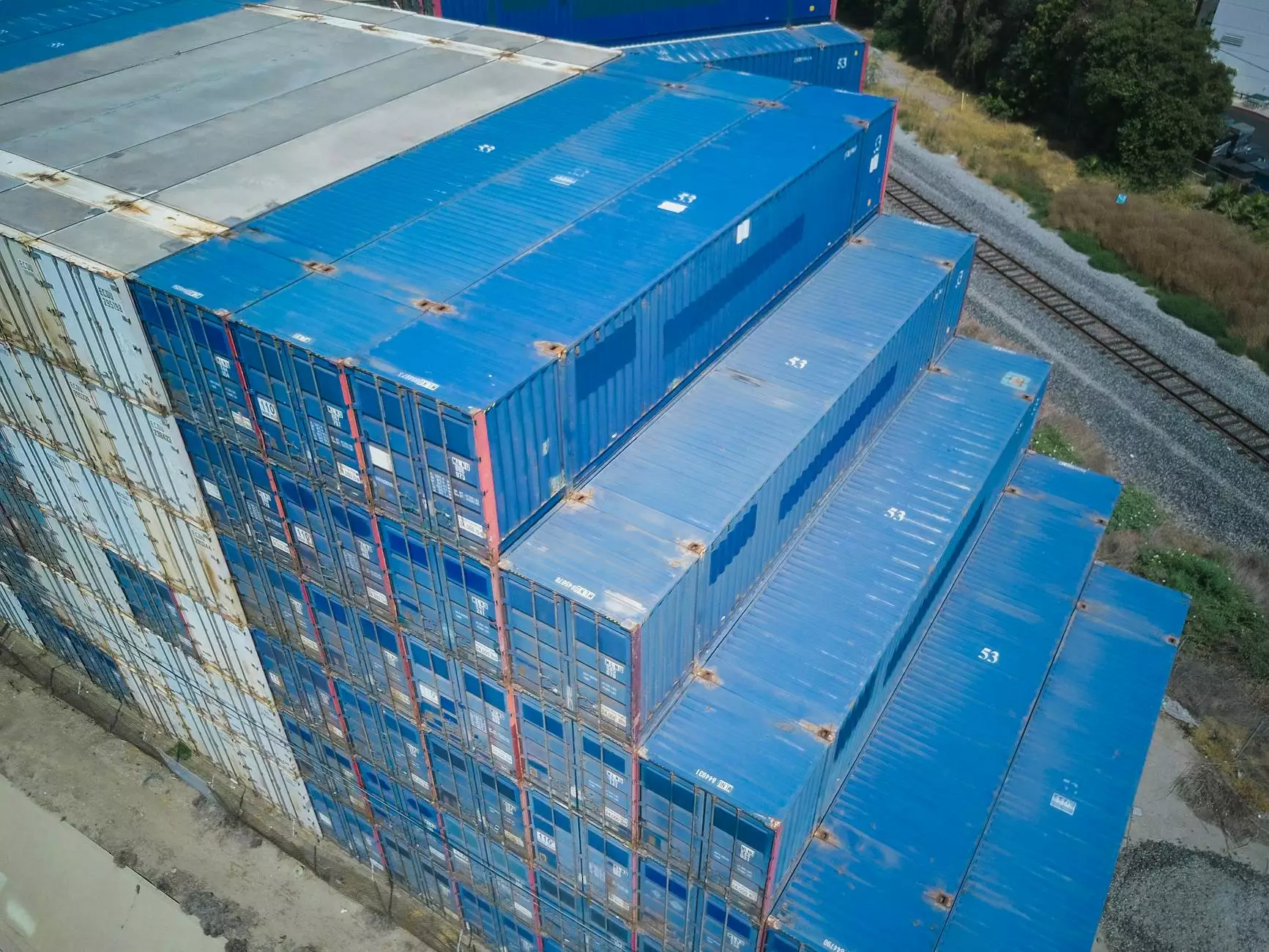Unlocking Business Success in Logistics with Cutting-Edge Cargo Tracking and Trace Solutions

Why Reliable Cargo Tracking is Absolutely Essential for Modern Logistics Businesses
In today’s competitive global economy, the ability to provide transparency, efficiency, and reliability in cargo movement is a critical determinant of success for companies operating within the shipping, transportation, and airport sectors. At the heart of achieving these goals is advanced cargo tracking technology — a vital component empowering logistics providers to deliver superior service and foster customer loyalty.
Reliable tracking systems ensure real-time visibility of shipments, helping manage delays, optimize routing, prevent theft, and improve overall operational efficiency. This article explores how integrating robust cargo tracking solutions, like those offered by cargobooking.aero, can significantly elevate your business to stay ahead of competitors and meet the ever-increasing demands of today's international supply chain.
The Evolution of Cargo Tracking in the Logistics Industry
From basic manual logging to sophisticated, IoT-powered tracking solutions, the logistics industry has undergone a transformative evolution. Early methods relied heavily on paper documentation and manual reporting, leading to delays, errors, and a lack of real-time insight.
Today, digital cargo tracking platforms leverage advanced technologies such as GPS, RFID, IoT sensors, and cloud computing to provide instantaneous updates, automated alerts, and comprehensive data analytics. This shift has dramatically improved operational transparency and customer satisfaction, enabling logistics companies to proactively manage shipments, prevent losses, and respond swiftly to any issues that may arise.
Core Features of Modern Cargo Tracking Solutions Offered by cargobooking.aero
A comprehensive cargo tracking system must combine a variety of features to deliver maximum value. The key features include:
- Real-Time Location Tracking: Continuous updates on cargo positions via GPS and RFID technology.
- Automated Status Updates: Instant notifications at each stage of transportation, including loading, transit, customs clearance, and delivery.
- Historical Data Records: Detailed logs of shipment history for audits, compliance, and analysis.
- Predictive Analytics: Advanced algorithms forecast potential delays or issues, helping prevent disruptions.
- Integrated Communication Channels: Seamless messaging between logistics teams and stakeholders for quick problem resolution.
- Cargo Security Monitoring: Sensors and alarms to detect unauthorized access or handling.
- Comprehensive Dashboard: User-friendly interfaces displaying all shipment data in one centralized location.
By leveraging these features, cargo operators can transform their logistics processes into highly transparent, responsive, and customer-centric operations.
Advantages of Implementing Advanced Cargo Track-and-Trace Capabilities in Your Business
1. Enhanced Operational Efficiency
Automating tracking processes reduces manual intervention, minimizes errors, and accelerates decision-making. With real-time data at your fingertips, you can optimize routes, plan resource allocation, and reduce idle time, ultimately lowering operational costs.
2. Improved Customer Satisfaction and Trust
Customers demand transparency and timely updates. Offering track-and-trace capabilities builds confidence, enhances communication, and improves overall customer experience. Transparent shipment visibility fosters trust, leading to increased loyalty and repeat business.
3. Greater Security and Loss Prevention
Cargo theft and misplacement are significant concerns. Advanced tracking systems equipped with security alerts and sensor alerts help detect unauthorized access or mishandling, enabling rapid intervention to prevent losses.
4. Regulatory Compliance and Documentation
Accurate tracking records simplify compliance with international shipping standards and customs regulations. Digital logs and automated documentation reduce processing time and ensure audit readiness.
5. Data-Driven Decision Making
Comprehensive analytics provide insights into shipping patterns, operational bottlenecks, and performance metrics. These insights enable strategic improvements, capacity planning, and better forecasting.
6. Competitive Differentiation
Businesses offering superior visibility and reliable tracking solutions stand out in crowded marketplaces. By integrating advanced cargo trace systems like those from cargobooking.aero, your company can position itself as a leader in innovation and customer service.
The Strategic Role of Cargo Tracking in Shipping Centers, Transportation, and Airports
Efficient cargo tracking is pivotal across all facets of logistics, especially within shipping centers, transportation networks, and airport operations. Let’s explore how targeted tracking enhances each area:
Shipping Centers
- Streamlined Cargo Handling: Precise tracking minimizes delays during loading and unloading, leading to faster turnaround times.
- Effective Inventory Management: Real-time visibility helps monitor stock levels and manage storage space more efficiently.
- Enhanced Coordination: Accurate data supports seamless coordination between suppliers, customs, and delivery teams.
Transportation Networks
- Optimized Routing: Dynamic adjustments based on live traffic and weather data improve delivery times.
- Predictive Maintenance: Monitoring vehicle conditions prevents breakdowns and reduces downtime.
- Increased Safety: GPS tracking enhances security and safety protocols for cargo and personnel.
Airports
- Efficient Cargo Handling: Real-time tracking accelerates cargo processing, reducing delays at customs and transfer points.
- Enhanced Security: Monitoring cargo movement ensures compliance with security regulations and prevents illicit activities.
- Better Resource Allocation: Predictive data assists in workforce planning and equipment deployment.
Integrating https://cargobooking.aero/track-and-trace into these operations enables businesses to maximize efficiency, reduce costs, and provide superior service to clients worldwide.
Implementing Cargo Track-and-Trace Systems: Best Practices for Business Success
1. Choose the Right Technology Partner
Select a provider with a proven track record in delivering scalable, secure, and user-friendly cargo tracking platforms, such as cargobooking.aero. Look for features that align with your business needs and growth plans.
2. Integrate Seamlessly with Existing Systems
Ensure the tracking solution effortlessly integrates with your Enterprise Resource Planning (ERP), Warehouse Management System (WMS), and other logistics tools. Streamlined integration promotes data consistency and operational coherence.
3. Invest in Training and Change Management
Proper staff training ensures maximum utilization of new systems. Emphasize the benefits of transparency, efficiency, and security to facilitate smooth adoption.
4. Focus on Data Security and Privacy
Implement stringent security measures to protect shipment data. Regular audits, encryption, and user access controls safeguard sensitive information.
5. Monitor, Analyze, and Optimize
Continuously review tracking data and analytics to identify bottlenecks, inefficiencies, or security concerns. Use insights gained to refine procedures and adopt innovative strategies.
6. Foster a Culture of Transparency and Customer Service
Leverage tracking systems to improve communication with customers. Provide them with access to shipment updates, estimated delivery times, and proactive alerts, enhancing overall satisfaction.
The Future of Cargo Tracking and Logistics Business Growth
The logistics industry is rapidly embracing innovations like artificial intelligence, machine learning, blockchain, and IoT to create smarter, more autonomous supply chains. As these technologies mature, cargo tracking systems will become even more predictive, secure, and integrated.
Businesses that invest early in next-generation tracking solutions, such as those offered by cargobooking.aero, will enjoy a significant competitive advantage—streamlining operations, reducing costs, and elevating customer satisfaction to new heights.
In conclusion, embracing advanced track-and-trace technology is no longer optional but essential for companies aiming to thrive in the dynamic world of global logistics. This strategic investment yields measurable improvements in efficiency, security, and client trust, positioning your business for sustained growth and success in the future.
For more information on innovative cargo tracking and how it can transform your logistics operations, visit cargobooking.aero and explore their comprehensive track-and-trace solutions.









